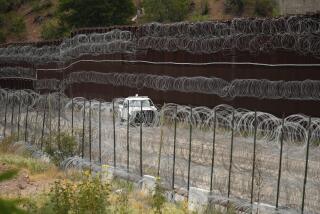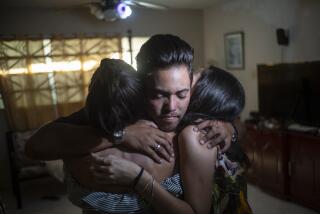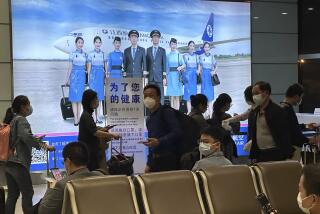Trump administration sets new restrictions on Americans’ business ties and travel to Cuba

The restrictions are aimed at enacting what Trump in June described as plans to reverse the Obama administration’s diplomatic opening with the communist-ruled island.
Reporting from Washington — The Trump administration announced new rules Wednesday to make it tougher for U.S. businesses to work in Cuba and for Americans to travel to the island.
The restrictions are aimed at enacting what Trump in June described as plans to reverse the Obama administration’s diplomatic opening with the communist-ruled island.
Effective Thursday, businesses will be required to obey a new set of regulations that are “intended to steer economic activity away from the Cuban military, intelligence and security services,” a senior White House official said, speaking on condition of anonymity to brief reporters.
The Cuban military is deeply enmeshed in much of the island’s economy, including the tourism industry.
Individuals will be prohibited from traveling to Cuba under the new rules but can continue to travel as part of groups registered with the U.S. government and following the so-called people-to-people plan, which generally requires the trip to have an educational component.
Travel by Americans to the island had exploded in the months since December 2014, when President Obama and Cuban President Raul Castro announced that they planned to renew diplomatic ties following a half-century of Cold War-era hostility. Ties were formally restored the following year.
Advocates of better ties with Cuba reacted with anger on Wednesday, branding the new rules convoluted and confusing.
“At a time that President Trump is meeting with communist leaders in China and Vietnam, these regulations show the absolute hypocrisy and political pandering of the Trump administration on Cuba,” said Collin Laverty, president of Cuba Educational Travel, a group that arranges trips to the island.
Trump is in the midst of a five-nation tour of Asia.
The restrictions will hit especially hard at the dozens of large, big-name hotels in Cuba that are at least partially owned by the military. Americans will be banned from staying in those hotels, and U.S. tour operators prohibited from booking rooms there.
John Caulfield, who served from 2011 to 2014 as head of the U.S. Interests Section in Havana, which took the place of an embassy until relations were restored, said the public perception will be, “Oh, we can’t go to Cuba anymore.” In fact, Americans can still travel there, he noted, but it will be more complicated.
The new rules require American travelers to engage in a activity that will “enhance contact with the Cuban people, support civil society in Cuba, or promote the Cuban people’s independence from Cuban authorities,” the Treasury Department said.
That would include renting rooms in private Cuban bed-and-breakfasts that have sprung up since the restoration of relations or dining in privately owned restaurants, the so-called paladares, which have also multiplied in recent years.
The official who briefed reporters emphasized that U.S. authorities would police potential violations of the new rules but acknowledged: “I wouldn’t expect to see [a Treasury agent] at every border point.”
American travelers to Cuba will still be allowed to bring back a limited amount of rum and cigars as long as they obey the other travel restrictions, the official said.
The new regulations for businesses are more murky. U.S. businesses cannot engage in financial transactions with or export products to entities with military ties. The State Department is producing a list of off-limit people and enterprises.
Trump in June traveled to Miami’s Little Havana neighborhood — the last, diminished bastion for anti-Castro fervor — to announce his intention to roll back the steps Obama had taken to improve relations with Cuba. More recently, administration officials have blasted Cuban authorities for human rights violations that they say repress the Cuban people.
The administration has also confronted a series of mysterious acoustic attacks on U.S. personnel stationed in Cuba. Washington says 24 people have reported injury or illness and has withdrawn about half the U.S. diplomatic staff from Havana. The U.S. also has expelled 17 Cuban diplomats from Washington. Officials said the new rules announced Wednesday had nothing to do with the purported attacks, which Cuba has denied any role in.
For more on international affairs, follow @TracyKWilkinson on Twitter
ALSO
U.S. tourist, FBI agent may have been victims of Cuba sonic attacks
Tillerson: U.S. may close embassy in Cuba after mysterious sonic attacks
More to Read
Sign up for Essential California
The most important California stories and recommendations in your inbox every morning.
You may occasionally receive promotional content from the Los Angeles Times.











